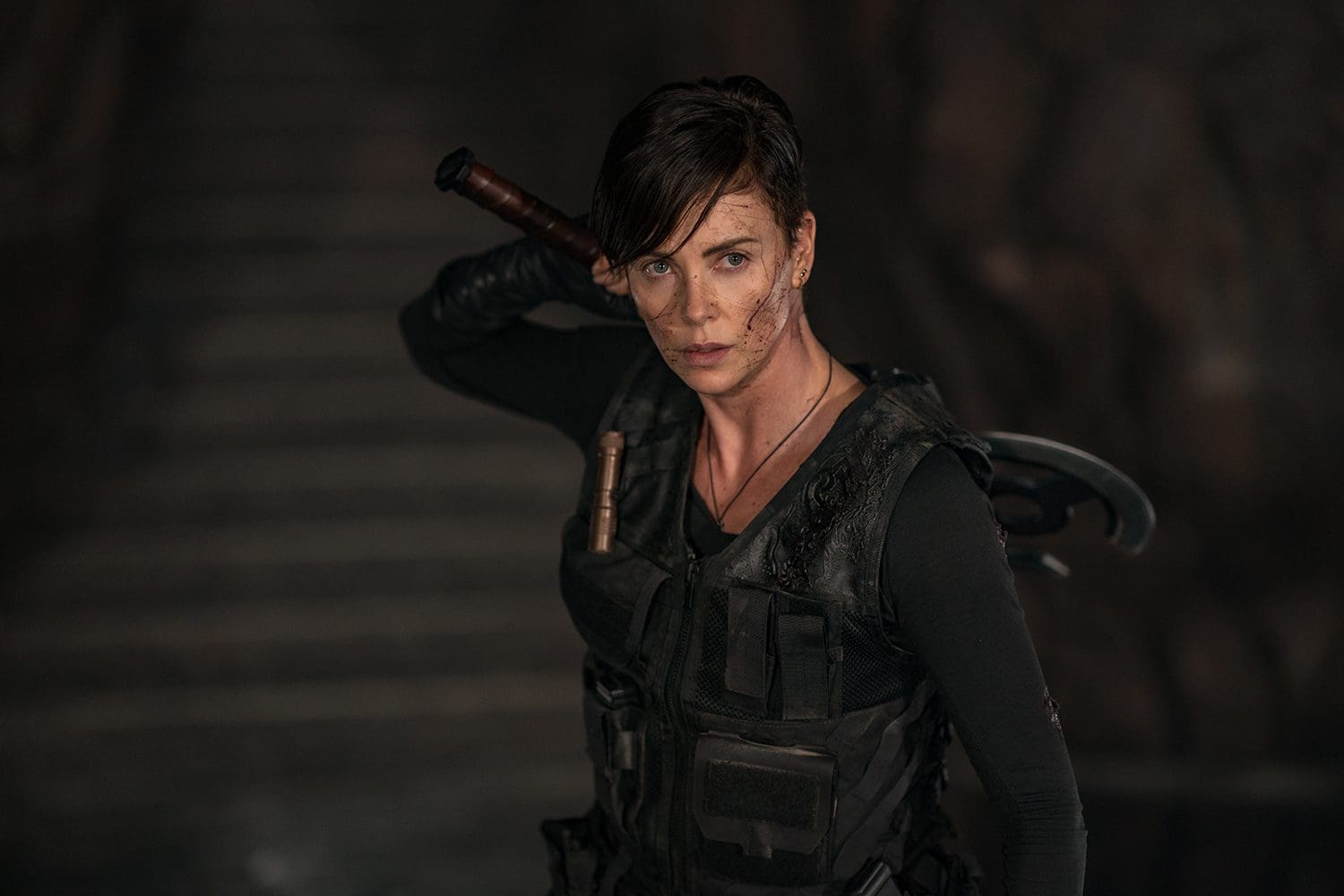
Written by Samuel Niles
“The world can burn for all I care.”
When Charlize Theron’s Andromache of Scythia (but you can call her Andy, as she says in a quip intended to establish how badass-but-also-laid-back she is) says this, I immediately figured that, by the end, she would very much care if the world burned.
There is nothing wrong with predictability or cliches in and of themselves. The Last Of Us Part II, at its core, is as familiar as any cautionary tale of revenge, the cycle of violence digging two graves, and what have you. It’s also a masterpiece. Indeed, I’ve loved many a predictable story, because I’m always interested in the how, be it in a “how will the characters go about solving this problem” plot sense, or in the artistic delivery (sometimes the former, always the latter).
Unfortunately, The Old Guard, written by Greg Ruka (who also wrote the original comic series of the same name) and directed by Gina Prince-Bythewood (Beyond The Lights), never delivers in any respect. I almost feel bad saying this, but almost nothing in this movie works. It reminds me quite a bit of 2019’s Terminator: Dark Fate, in that everything is fine on a conceptual level, and it never surpasses that concept. The greatest crime in the film isn’t just that it’s devoid of it. It’s that it thinks it has it. All of the characters are hollow, but painted with insufferable broad strokes that are supposed to make them “real” or “relatable.” Any defining traits ring hollow, not coming across as organic or in the moment, but instead as though the writer is aggressively whispering to you “aren’t my characters relatable.”
One of the worst examples of this is found in one of the opening scenes. The four members of the titular “Old Guard” meet up for the first time in a while, to prepare for a new job. In addition to Theron (Atomic Blonde), the group is comprised of Booker (Mathias Schoenaerts, Red Sparrow), Joe (Marwan Kenzari, Aladdin), and Nicky (Luca Marinelli, Trust), and they are later joined by newby Nile (Kiki Layne, If Beale Street Could Talk). Before they discuss the job, they place bets on whether or not Andy will be able to guess where in the world the food she’s tasting originates from. After she does, there are laughs from the winners, sighs of frustration from the loser, and a whole lot of nothing on my end. This is because, immediately after, they just go right into “important dialogue” mode, where they grimace as they talk about how dangerous but important their job is.
There’s nothing in and of itself wrong with a tonal shift like this. But it is not at all acknowledged within the film. They just go from camaraderie mode to “important dialogue” mode. No sense of a shift, no longing for the camaraderie that was just happening. These are the two primary modes in The Old Guard. There’s nothing cohesive about the dialogue, just ham-fisted attempts at “humanity” and equally cringeworthy “important dialogue” that’s peppered with a joke or a “remember the time” kind of moment to show you just how human it is.
This is the essential problem with the entirety of The Old Guard. Every artistic decision comes across as paint by the numbers, while trying to make absolutely sure you think its hollow characters are human, that its hollow and weightless handheld action scenes are “intense” and “realistic”, and that its vapid commentary on the pharmaceutical industry, personified by villain Merrick (Harry Melling, Harry Potter and the Deathly Hallows Part 1), is ever so important.
Regarding the action, you’d probably expect handheld action in a bad movie to be incoherent, but it’s not….and I kind of wish it was. At least incoherence would have inspired emotion. Instead we just have a bunch of nothing shots where the camera is shaking just because. It’s not shaking enough to obscure, but neither does it invigorate.
Frankly, everything in this movie seems like it was a first. Not first as in unique or fresh, but first as in first draft, as in first take. Whatever talent the cast has (and it is a talented cast) is nowhere in sight, as though they were given one shot at saying the already terrible dialogue and then had to move onto the next. Barring the occasional good line or effective shot, almost nothing in this movie works. It’s a sloppy and honestly embarrassing mess of a film.
It’s also a film that seems to be getting very good reviews. I would feel remiss to not bring that up. But while I bring it up out of respect to whoever reads this, as they may not share my minority opinion, I also bring up these strong reviews so I can ask the following question: How?

